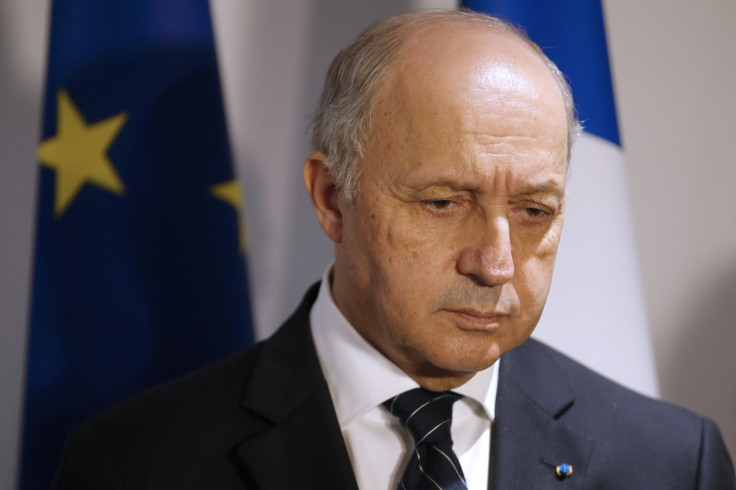French Foreign Minister Says Assad Departure Not Necessary For Syria Reform

France’s Foreign Minister Laurent Fabius reportedly said Saturday that he no longer believes Bashar Assad’s departure is necessary before any political transition in Syria. He made the statement in an interview to French regional newspaper Le Progres Saturday.
“A united Syria implies a political transition. That does not mean that Bashar Assad must leave even before the transition, but there must be assurances for the future,” he reportedly said.
The remarks mark a departure from the usual stance of Western countries fighting Islamic State terrorists, who have long insisted that Assad must step down as part of any political solution to the Syrian conflict.
Fabius, once among Assad’s fiercest critics, had hinted at cooperation between French and Assad’s Syrian forces to combat ISIS troops on a radio chat show last week. Officials close to Fabius at the time reportedly clarified his position saying that cooperation could only happen once a unity government without Assad was in place.
After the Paris attacks, France had stepped up its opposition to Assad, reportedly describing him as a “butcher” of his own people during the civil war. On a trip to Washington in November, French President Francois Hollande reiterated his determination to see Assad step down in order to give Syria a chance for peace, reportedly saying “it should be as soon as possible.”
Meanwhile U.S. Secretary of State John Kerry said Friday that it would be possible for Assad’s army and Syrian rebel groups to cooperate against Islamic State militants. However, he warned it would be "exceedingly difficult" to achieve this if rebel forces that have been fighting against Assad for more than four years did not have some confidence that the Syrian leader would eventually go.
Russia and Iran, Assad's main allies, have said it will be up to the Syrian people to decide on Assad's role at a future presidential election.
Meanwhile, at the frontlines of the conflict, U.K. military jets carried out their second bombing run on ISIS targets Saturday after British MPs overwhelmingly backed U.K. military action against ISIS, the BBC reported. The airstrikes targeted ISIS oil fields in eastern Syria, the country’s ministry of defense said.
© Copyright IBTimes 2024. All rights reserved.











